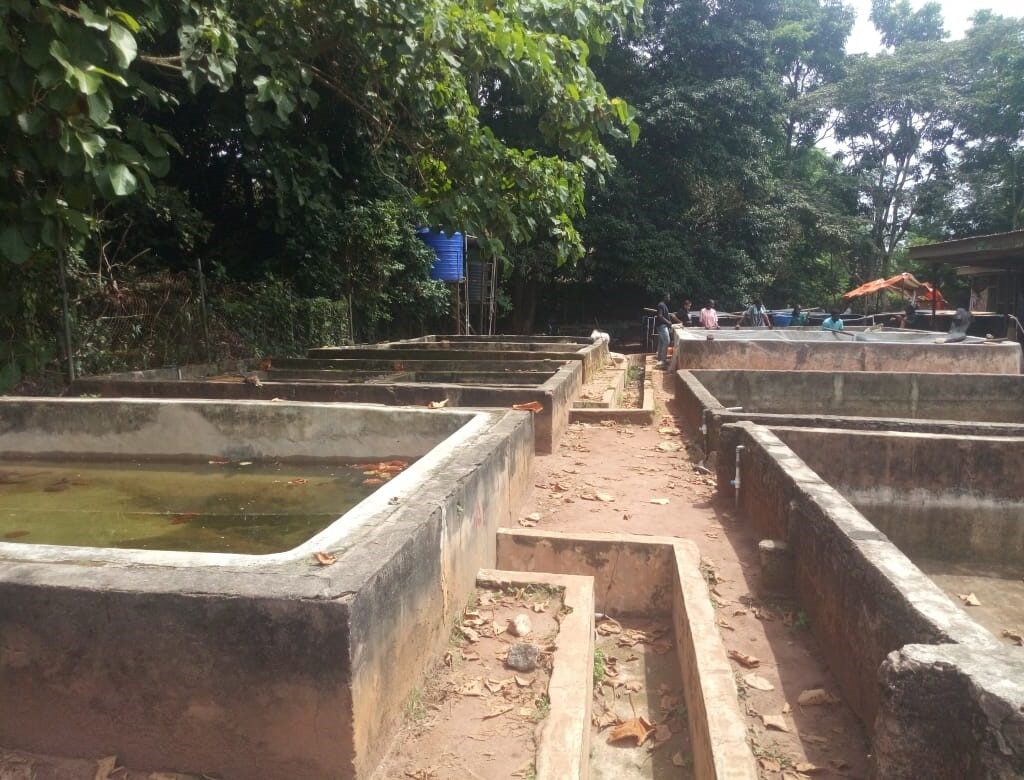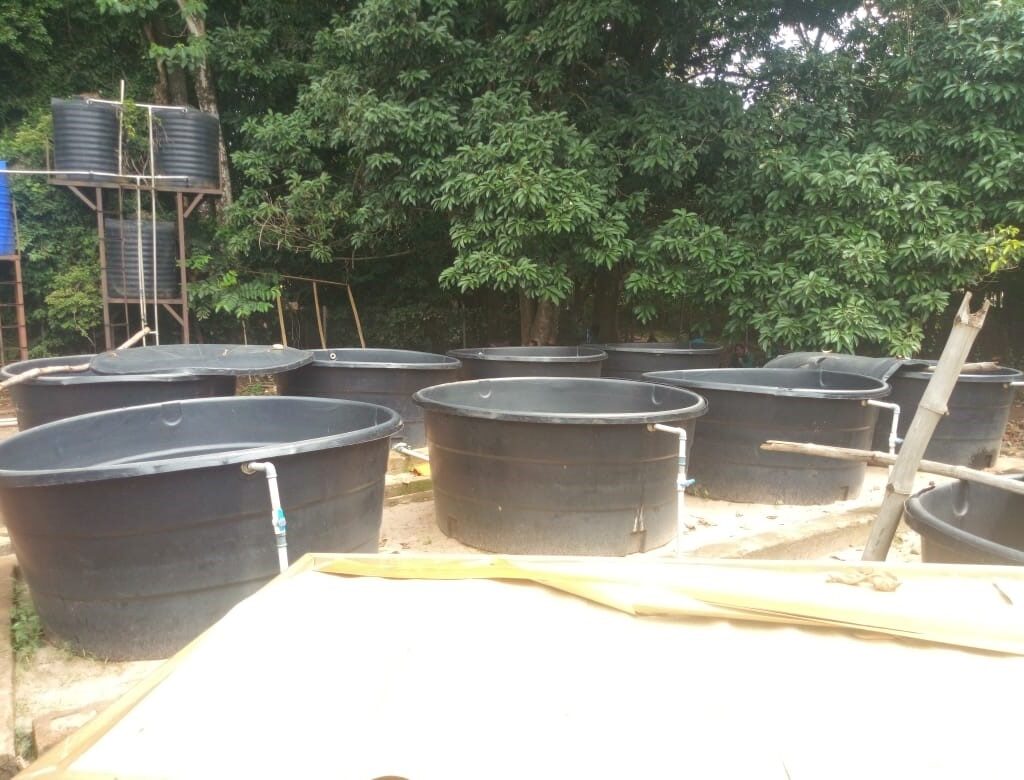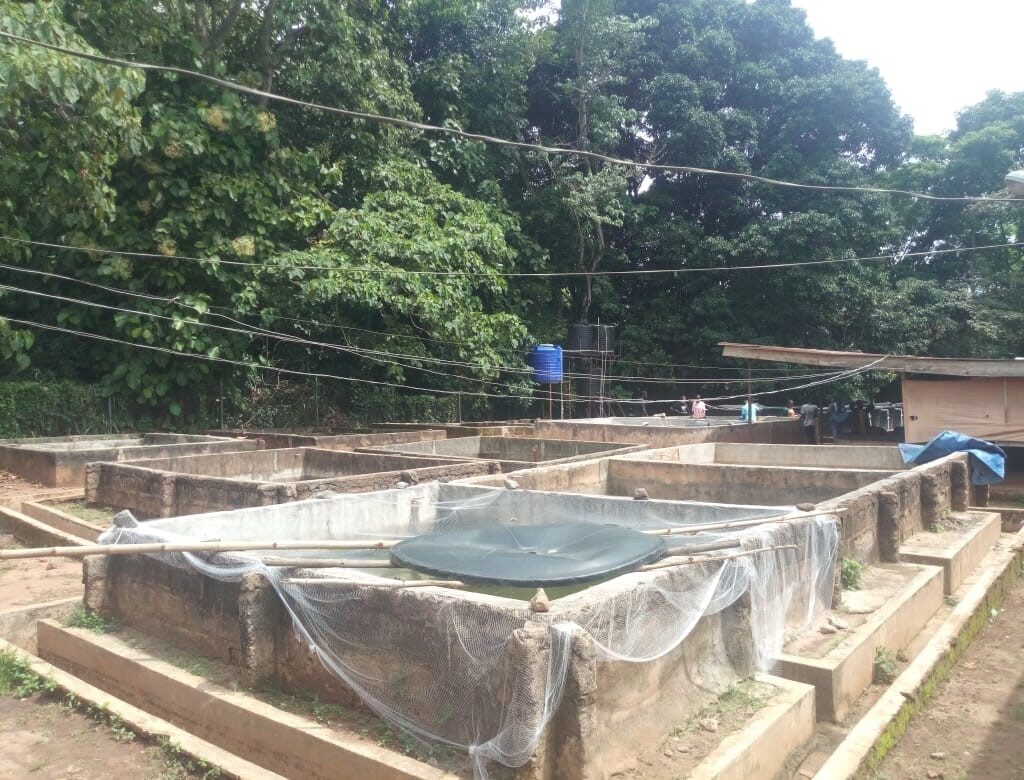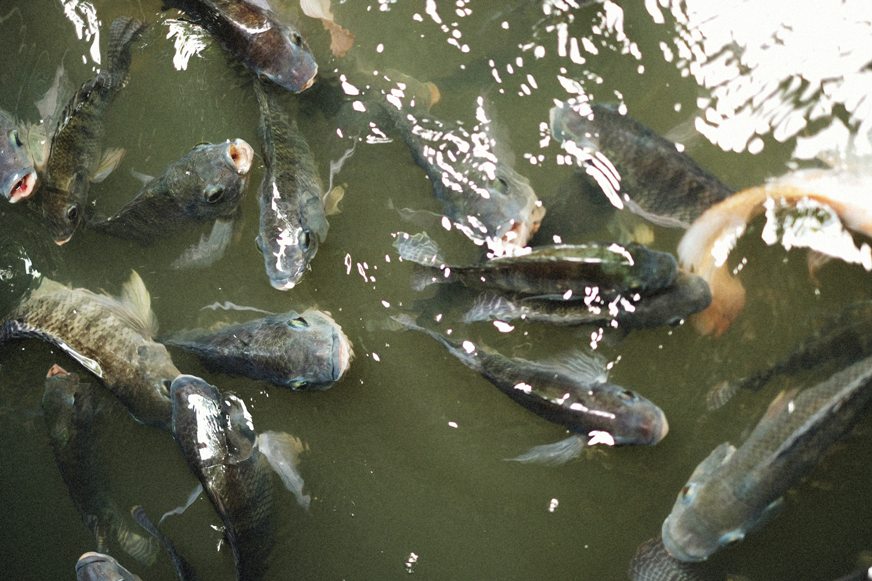
DR. O.M. WANGBOJE (Head of Department, Aquaculture & Fisheries Management)
WELCOME/GOODWILL MESSAGE:
On behalf of the Board of Studies and students of the Department of Aquaculture and Fisheries Management, I wish to heartily welcome you on board. Since 1984, the Department has been in the forefront in the training of manpower in the Fisheries sector for the overall development of the Nation, while promoting food security. The Department which is within the mainframe of the Faculty of Agriculture is headed administratively by a Head of Department who is supported by both academic and non-academic staff. The learning environment in the Department is highly conducive for both undergraduate and postgraduate work. The Department has continuously enjoyed full accreditation by the National Universities Commission (NUC), the regulatory body for Universities in the country, owing to its unique staff profile and state- of- the -art facilities amongst others. Admission into the Department has grown significantly over the years, a clear testimony of the high acceptability of the programme amongst teeming youths. I wish to heartily commend our amiable and dynamic VC, Prof. Lilian I. Salami, for this laudable initiative to increase the webometric ranking of the University of Benin and to put back the University on the pedestal of greatness. The University which is over five decades old, has been in the forefront in the development of manpower in all realms of endeavor for the overall progression and growth of our dear Nation. I personally wish to congratulate Madam VC for the giant academic strides she has achieved since she came on board; I have no doubt that this current initiative will drive our great University to the top, where she truly and rightly belongs. The Department of Aquaculture and Fisheries Management will continue to uphold the tenets of the University in the areas of quality teaching, research and community service. God bless the University of Benin, God bless UNIBEN! God bless UNIBEST!!
HISTORY:
The ecological region in which the University of Benin is situated, and in particular Edo and Delta States, is a region of intensive agricultural, forestry and fisheries activities. This region consists of extensive mangrove swamps in the Delta where numerous rivers ramify and drain into the Atlantic Ocean, a tropical high forest zone in the middle belt and low forest and savanna regions towards the north around Igarra in Akoko-Edo Local Government Area. The entire environment is characterized by intensive farming and fishing activities by individuals, private companies and government agencies. Edo and Delta States are pre-eminent in the entire country in the production of food crops such as yams, cassava, cocoyam, plantains, bananas, etc. In addition, cash crops such as rubber, oil palm, cocoa and timber are produced extensively in Edo and Delta States. Edo and Delta States are the foremost producers of rubber in the entire country. Historically, this area was among the first areas in which silviculture was developed during the colonial days. The Taungya system of farming, which is a symbiosis of agriculture and forestry, was first started in Sopkonba, and has since spread to other parts of the country and continues to be important in our agricultural system. Sokponba continues to remain a centre for International Research in Forestry. Without doubt, Edo and Delta States are the centre of the forest industry in Nigeria. For instance, the oldest wood processing and utilization centre in the country, African Timber and Plywood (A.T.& P), is in Sapele, Delta state. The ecological region under consideration is adjacent to the Nigerian coastline where major fishing industries thrives. Inland freshwater also abounds and a lot of freshwater fishing activities go on. Aviara Fish Farm in Isoko L.G.A. is the largest farm in Nigeria and indeed in West Africa. In addition, there are over 200 hectares of fishponds in the states. Also, even now, a big cattle, sheep and goat market (especially of Aduwawa, Eyaen) exist in the city. There is also Okomu Oil Palm, Presco Oil, Okomu National Park, Ejemai Poultry Farms, Songhai Farms, Amukpe among others in the zone. In order to help government maximize the utilization of these resources, the output of more manpower in the various areas of agriculture is extremely important for research and production. For example, it has been estimated that the Fisheries sector alone would require at least 100 graduates every year for the next decade in order to effectively exploit the fisheries resources in Nigeria Rivers. Lakes and coastal waters. The Forestry and Wildlife and general agriculture sectors are similarly deficient in trained personnel. In the light of the foregoing and considering the fact that there was no higher institution awarding degrees in Agriculture, and after the closure of the College of Agriculture and Natural Resources, there was a need to establish a Faculty of Agriculture at the University of Benin, within this zone of intensive agricultural, forestry and fisheries activities.
MISSION AND PHILOSOPHY
The University of Benin is situated within an ecological region of intensive capture and culture fisheries activities. Within this ecological zone, adjacent to the Nigerian coastline there are 56 big rivers richly endowed with natural resources that drain into the Atlantic Ocean. The need to manage the natural aquatic resources for sustainable development formed the basis for the establishment of the Department of Aquaculture and Fisheries Management, to develop essential human resources.
GOALS AND OBJECTIVES
(i) The Department strives to be a center of excellence in Fisheries and Aquatic Studies and provide services to the University, public and private sectors in all areas relating to fish production and the environment.
(ii) To produce graduate students who will be useful to themselves, the public and private sectors of the economy in the area of sustainable fish production and environmental management
(iii) To produce graduate students whose knowledge and practical experience can compare with such students produced by similar institutions within and outside Nigeria for the purpose of exchange of knowledge, scholarship and experience.
(iv) To be a consulting center for all agencies that has anything to do with fisheries and aquatic studies.
(v) To seek and nurture collaborative research in the field of Aquaculture and Fisheries Management.
PROJECTS:
• Ongoing World Bank/Edo state sponsored aquaculture project for students in the Faculty of Agriculture
• Field practical training for all penultimate students
• Ongoing development of a Training and Research Centre at Obadan Community, Edo state, for all Departments in the Faculty.
ONGOING RESEARCH AREAS AND SPECIALIZATION:
• AQUACULTURE
• POST HARVEST TECHNOLOGY
• WATER POLLUTION
• FISH NUTRITION
• FISHERIES MANAGEMENT
• FISHERIES ECONOMICS
• FISHERIES PRODUCTION
A few specific examples of ongoing research include the following:
• Microplastic levels in the Nile Tilapia (Oreochromis niloticus) in River Okhuo, Benin City, Nigeria.
• Effects of various culture facilities on the growth and economic performance of Clarias gariepinus
• Proximate composition of catfish fed with graded levels of mushroom diet
• Effects of natural food and artificial feed on the growth of Clarias gariepinus
• Replacement of fish meal with poultry offals for the growth of Clarias gariepinus
• Toxicity of Cassava mill effluent on the Nile Tilapia (Oreochromis niloticus)
• Survey of insect pest infesting processed fish in Benin metropolis
• Viability of pituitary extract from decapitated Clarias gariepinus in hypophysation
• Effects of heating temparatures on the levels of Aluminium in Clarias gariepinus barbecue wrapped with foil
• Survey of shell fishes available for consumption in Edo and Delta states, Nigeria
• Morphometry and growth pattern of Callinectes pallidus
• Microbial load of selected smoke dried fish in Egor and Oredo areas of Edo state, Nigeria
• Toxicity of palm oil effluent on Oreochromis niloticus fingerlings.
JOURNALS OF PUBLICATION (BUT NOT LIMITED TO):
• Journal of Agriculture, Forestry and Fisheries
• Association of Deans of Agriculture in Nigerian Universities (ADAN) Journal of Agriculture,
• International Journal of Fisheries and Aquatic Studies
• Journal of Aquatic Biology and Fisheries
• Journal of Aquaculture and Fish Health
• Tropical Freshwater Biology
• Nigerian Journal of Applied Science
• Journal of Agriculture and Food Environment
• Tropical Journal of Natural Product Research
• Journal of Applied Sciences and Environmental Management
• Ethiopian Journal of Environmental Studies and Management
• International Journal of Research and Reviews in Applied Sciences
LEARNING OUTCOMES:
• Students at the end of their Degree programme become excellently groomed in aquaculture and fisheries managment with room to return for a robust post graduate programme.
• Students become self-sufficient and may choose to be employers of labour
EVENTS:
• The Association of Nigerian Fisheries Scientists (ANIFS) will convene its 4th Annual Conference between the 11th and 14th of July, 2023, at the Federal University of Technology, Minna, Niger state.
Some pictures of the fish pounds in the Faculty




Recent Comments